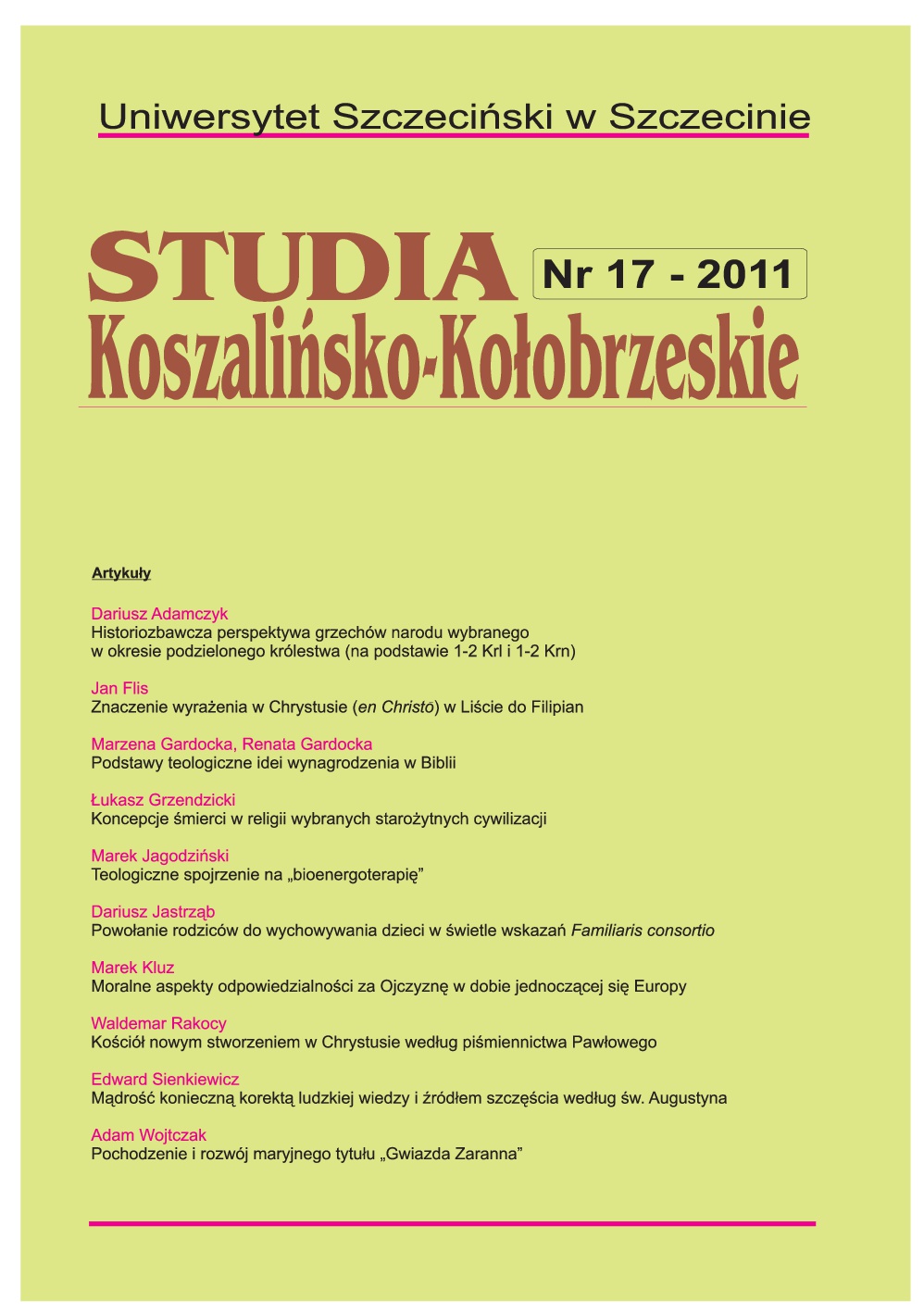Podstawy teologiczne idei wynagrodzenia w Biblii
Theological foundations of the Biblical idea of reward
Author(s): Marzena Gardocka, Renata GardockaSubject(s): Biblical studies, Pastoral Theology
Published by: Wydawnictwo Naukowe Uniwersytetu Szczecińskiego
Summary/Abstract: This article presents the Biblical roots of the Catholic doctrine on reward for the sins. In the Old Testament expiation was linked to the cultic activities of priests (individual and communitarian), with the ultimate ceremony in the Jewish feast – Jon Kippur, the Day of Atonement. In the New Testament atonement is linked to the ministry, death and resurrection of Jesus. By the will of God valid so far the cultic economy based on the law has been replaced with the new, based on voluntary suffering and death of Jesus. The sacrifice of Christ cleanses man from sin and makes it able to move closer to God. This allows Christians to continue the process of their sanctification, by the inclusion of their own contributions into His work. The sacrifice of Christ on the cross continues in the Eucharist, maintaining the same power. Growing in the spiritual life, combined with the practice of reward, grew out of the New Testament, and found expression in many streams of spiritual life.
Journal: Studia Koszalińsko-Kołobrzeskie
- Issue Year: 2011
- Issue No: 17
- Page Range: 41-58
- Page Count: 18
- Language: Polish

